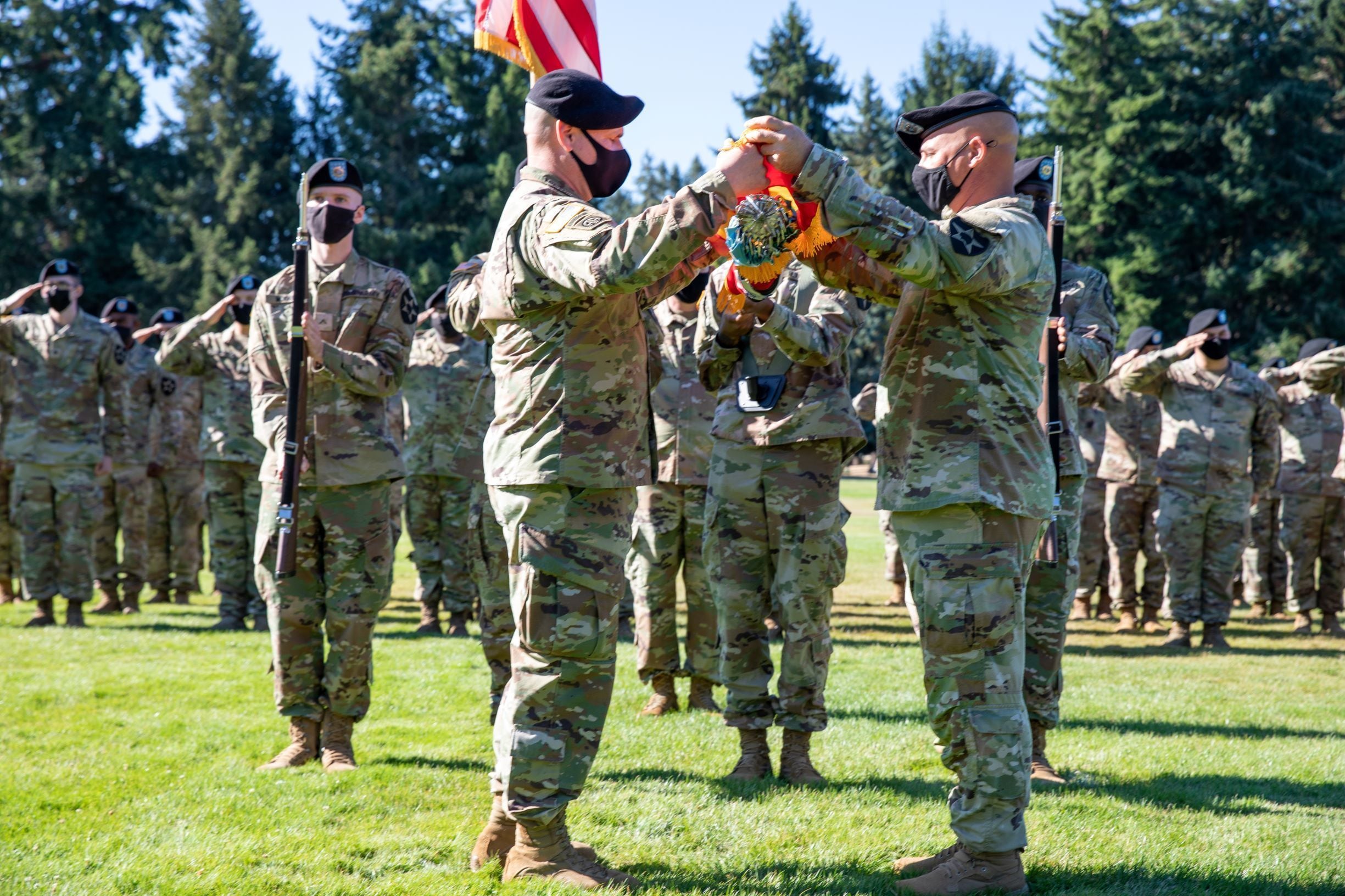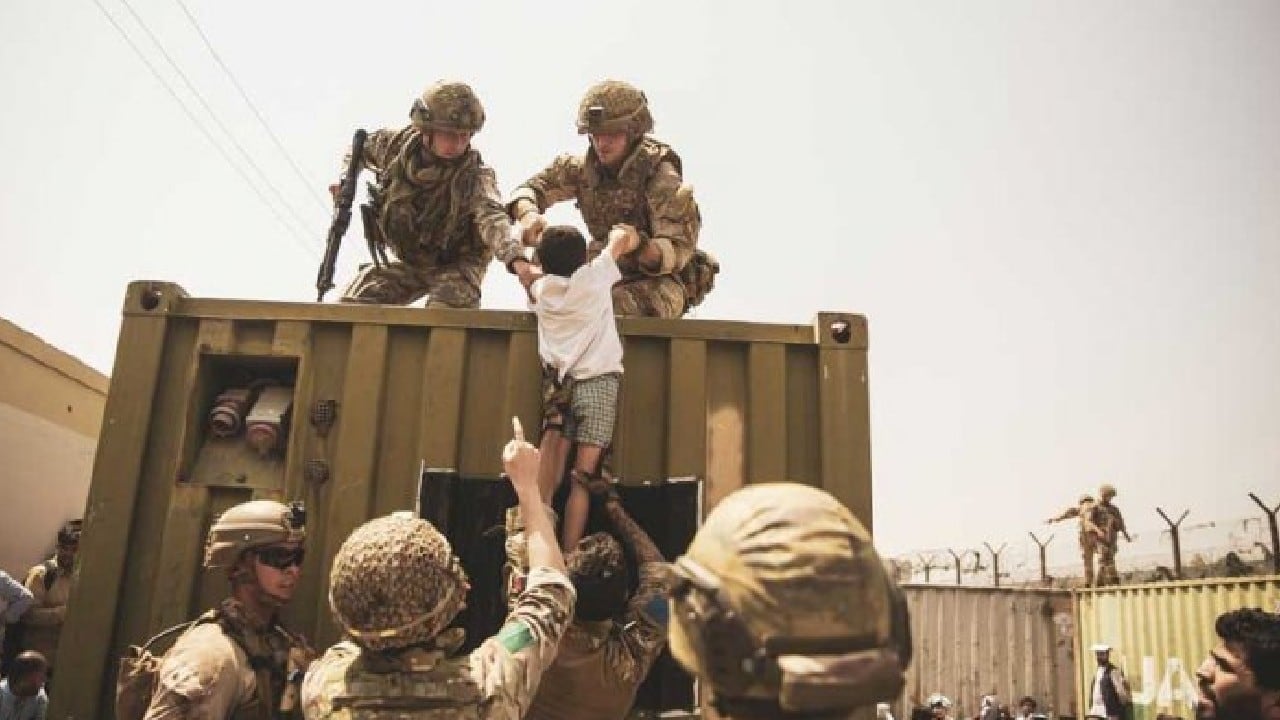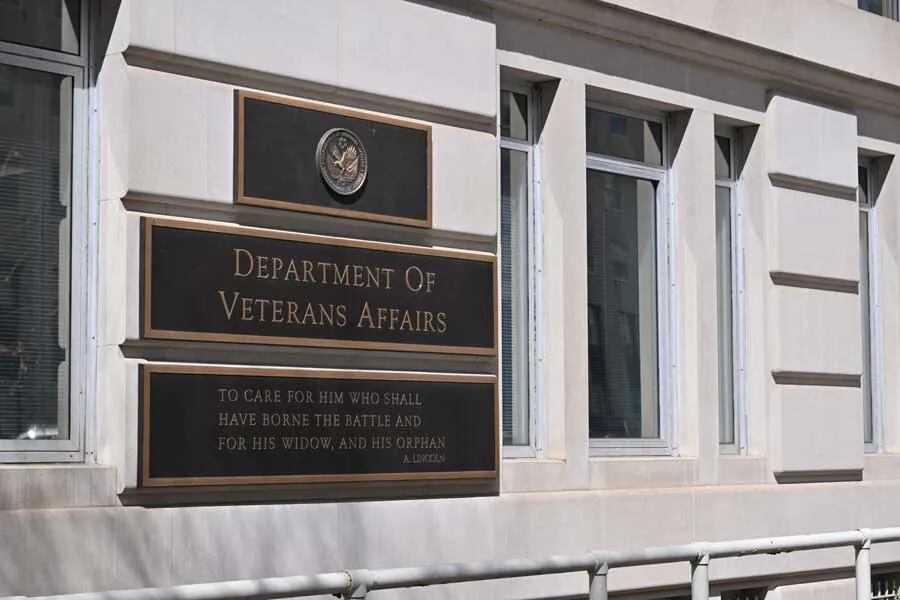The American people are continuing to lose confidence in the military, according to a new survey published Wednesday, but more research will be necessary to dig into why.
For the third year in a row, since it launched in 2018, the Reagan Institute’s national defense survey found a declining percentage of its 2,500 respondents who reported high confidence in the military, across political, gender, age and other demographics. The survey also has questions about confidence in Congress, the presidency, the Supreme Court, law enforce, the media and other institutions.
“... we’ve tested over the last three years a number of public institutions and institutional trust is declining overall in American society,” Rachel Hoff, the Reagan Institute’s policy director, told reporters Wednesday. “That’s perhaps not surprising, but the way that the military is falling so much more quickly than the other institutions, we think is notable, particularly in the light of the real understanding that the American people have about the national security threats we face.”
Confidence in the military began to fall in 2019, from 70% to 63%, and then down to 56% earlier this year. In the nine months since that last survey, confidence dropped down to 45%, the sharpest decline and the lowest level of confidence in the military since the survey began.
Along party lines, every group reported a declining confidence, but it was more stark for Republicans: a 17% drop versus 9% for independents and 6% for Democrats.
When asked to elaborate on their choices, it came down to two camps: Those who are confident in the military report they are so because of confidence in service members, while those who aren’t confident have several reasons why, without a clear prevailing opinion.
“But political leadership is at the top of that list,” Hoff said. “So that could range from anything from presidents of the United States ― whether that’s the current president, the previous president ― it could range from the way that our political leaders, say in Congress, talk about the military, the politicization of military leadership more broadly.”
Similarly, only 40% of respondents were confident the military could act in a “professional and non-political manner.”
The survey doesn’t drill down further, however, to unpack what might be causing those concerns about politicization. That issue has been raised multiple times over the past few years, from President Donald Trump’s rhetoric around the use of the military to Defense Department diversity and inclusion efforts that some believe serve a liberal political philosophy.
A focus group would probably be the right forum to dig down into why Americans are losing confidence in the military, Hoff added.
But the survey does break out some issues that give a glimpse. One is the withdrawal from Afghanistan, which 62% disapproved of, along with 59% of respondents who characterized U.S. involvement there generally as a failure.
The reasons why were varied. While 47% agreed with the decision to withdraw, 70% of those who did not thought troop levels — roughly 2,500 before the April announcement — should have remained steady.
Just under half attributed the issues with the withdrawal to poor judgment by President Joe Biden.
The survey also explores two other indicators: Confidence in the military’s ability to keep the U.S. safe, and confidence in military capabilities.
While 57% of respondents were very confident about safety, they were less confident in the U.S.’s ability to deter war, at 42%, and yet less confident in the ability to win a war overseas, at 40%.
Along those lines, 43% said they believed the U.S. military’s capabilities are the best in the world, while another 45% rated them as “one of the best.”
Within that category, conventional and high-tech weaponry were rated higher than leadership: 33% said the U.S. has the best military leadership, with another 42% rating it “one of the best.”
RELATED

One of the most bipartisan issues in the survey was China, and its perceived status as the No. 1 outside threat to the U.S.
“It is now majority of American people believe that China is the country that poses the greatest threat to the United States,” Reagan Institute director Roger Zakeim told reporters. “That was not the case just a few months ago, in February, and certainly, when we started this, in 2018.”
Fifty-two percent of respondents — 64% of Republicans and 44% of Democrats ― put the country as a bigger threat than Russia, North Korea, Afghanistan and Iran.
“You know, the shift toward the focus on the China threat may be driven by Republican opinion, which is a little bit out ahead of independents and Democrats, but independents and Democrats now agree that China’s the single greatest country threat that the U.S. faces,” Hoff said.
Along those lines, the majority of survey respondents said the U.S. should focus its military presence in East Asia, where previously respondents had leaned more toward the Middle East.
The Pentagon on Monday announced the completion of its global posture review, meant to specifically address where U.S. assets should be placed.
While deterring China, and Russia, continues to be a cornerstone of DoD policy, the classified results of the review mean that its findings and recommendations won’t be publicized until after they’re manifested, if ever.
Meghann Myers is the Pentagon bureau chief at Military Times. She covers operations, policy, personnel, leadership and other issues affecting service members.





